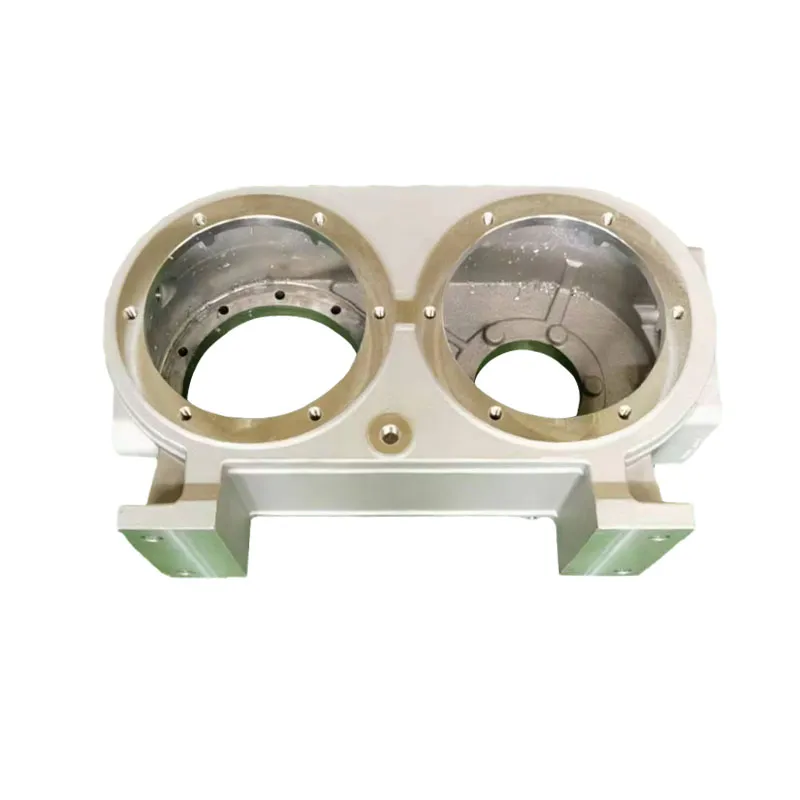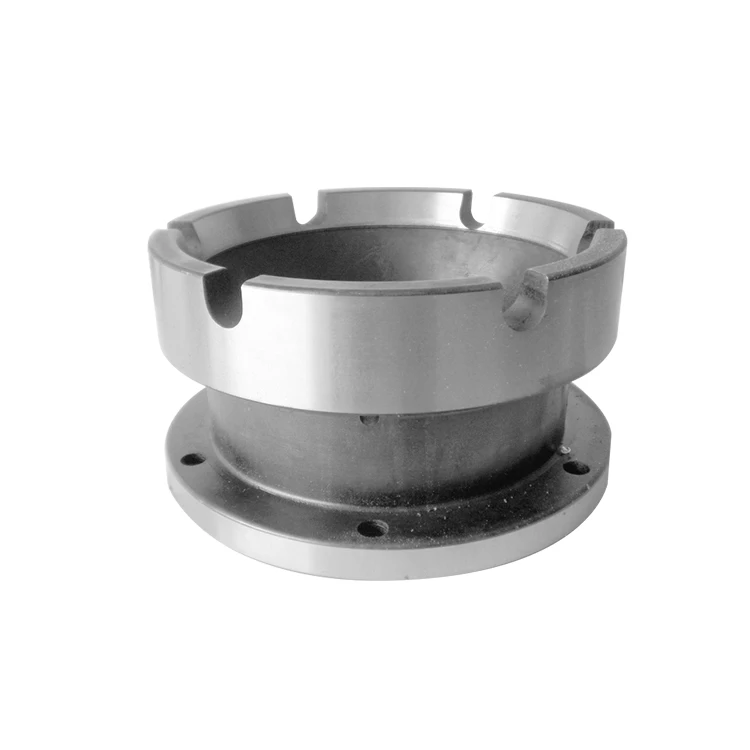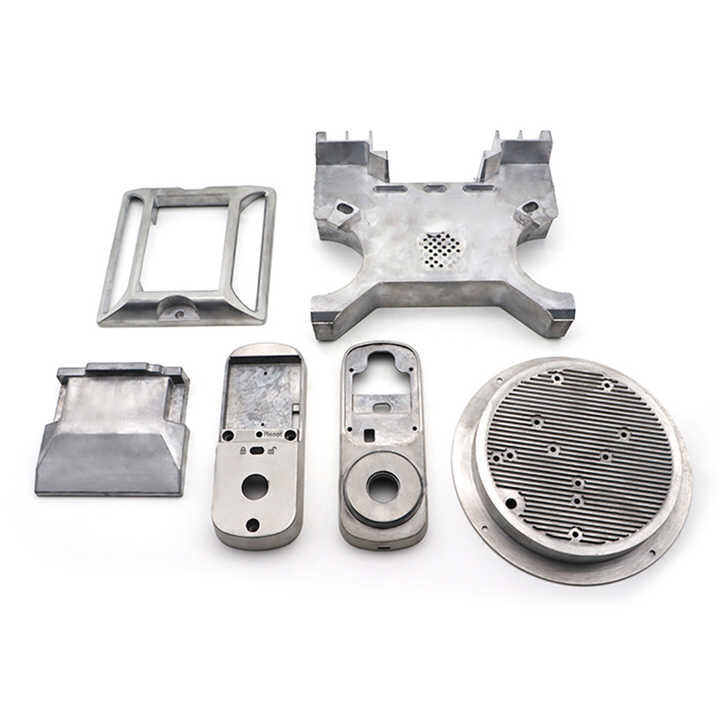Aluminum casting for automotive solutions that require strength and lightness
A Comprehensive Overview to Selecting the Right Shop Providers for Your Project Needs
Picking the right foundry solutions is important for the success of any type of job. Each casting approach-- sand spreading, financial investment spreading, and die casting-- has one-of-a-kind benefits. Recognizing these alternatives aids in making educated decisions. Material option, production capacities, and high quality assurance are crucial factors to take right into account. Furthermore, evaluating expenses can impact lasting practicality. aluminum casting. What variables should direct this decision-making procedure?
Comprehending the Various Types of Factory Providers
While the world of shop solutions may seem complicated in the beginning glance, recognizing the various kinds can significantly simplify the manufacturing procedure. Foundries commonly specialize in casting metals, and the main types include sand spreading, investment casting, die casting, and centrifugal spreading.
Sand spreading entails developing molds from sand and is perfect for big elements or low-volume manufacturing. Financial investment casting, on the various other hand, uses high accuracy for detailed layouts, making it appropriate for aerospace or medical applications. Die casting, defined by requiring liquified steel right into molds under high pressure, is effective for automation of smaller sized components.
Centrifugal spreading makes use of rotational pressure to disperse liquified steel, producing solid, cylindrical parts. Each solution kind has distinct benefits and is chosen based on certain task demands. Comprehending these distinctions allows suppliers to select the most proper factory solution, inevitably improving effectiveness and product top quality.
Key Factors to Take Into Consideration in Material Choice
Picking the proper material for foundry solutions is a crucial step that influences the total success of a job. Secret consider material option consist of mechanical residential properties, thermal resistance, and corrosion resistance - aluminum casting. Recognizing the desired application and its demands is essential; products must stand up to functional anxieties while maintaining integrity with time
One more important factor to consider is the product's compatibility with the chosen production procedure, as some materials are better suited for specific strategies. Cost-effectiveness additionally plays a significant role, as spending plan constraints can restrict alternatives.

Schedule and lead times of materials can impact task timelines, making it needed for task supervisors to evaluate these elements thoroughly. By thoroughly assessing these elements, one can ensure an extra effective and effective factory service experience.
Evaluating Manufacturing Abilities and Technologies
How effectively a foundry can fulfill project requirements hinges on its production abilities and technologies. A thorough assessment of these elements is crucial for task success. Manufacturing abilities include the foundry's capability to handle varying task timelines, sizes, and intricacies. Understanding the shop's devices and equipment is essential, as contemporary technologies such as computer numerical control (CNC) machining and advanced mold-making methods can greatly enhance accuracy and performance.
Additionally, the shop's usage of ingenious materials and procedures, such as 3D printing or shed foam casting, can use advantages pertaining to style adaptability and cost-effectiveness. It is additionally essential to examine the shop's ability to range manufacturing, making sure that they can fit future increases in demand without endangering quality. By very carefully evaluating these elements, job supervisors can make enlightened choices concerning which shop is finest reference suited to satisfy their particular production needs and technical expectations.
Relevance of Quality Control in Metal Spreading
Quality control stands as an important pillar in the steel spreading market, ensuring that every component meets rigid specs and standards. This procedure entails organized tracking and assessment of each phase of manufacturing, from preliminary style to final inspection. Executing strenuous quality control methods improves the reliability and performance of cast elements, decreasing the probability of defects that can jeopardize architectural stability.
Reliable top quality assurance cultivates trust fund in between shops and clients, as adherence to high requirements represents dedication to excellence. It likewise decreases expensive rework and delays, improving manufacturing procedures. By determining prospective issues early, top quality assurance not only safeguards the end product but also adds to constant enhancement within the shop's procedures. Ultimately, focusing on quality control in metal spreading is necessary for attaining client contentment and maintaining an affordable edge in the market.
Reviewing Cost-Effectiveness and Budget Restraints
While passing through the intricacies of shop solutions, assessing cost-effectiveness and budget plan restraints becomes an essential variable for companies. Understanding the overall expense of possession involves even more than simply the initial rate; it requires an evaluation of long-lasting costs, including products, labor, and functional effectiveness. Firms must ask for thorough quotes that detail all possible expenses, making it possible for a clearer contrast between various factories.
Additionally, businesses have to analyze their particular job demands versus spending plan limitations. This includes reviewing the compromises in between reduced prices and prospective impacts on quality, lead times, and integrity. It is vital to think about whether the selected shop provides scalable services that can accommodate future demands without significant monetary pressure. By thoroughly balancing expense elements with job objectives, firms can make enlightened decisions that enhance both budget plan and performance, making certain effective outcomes for their factory jobs.
Often Asked Concerns
Exactly How Can I Ensure Prompt Distribution of My Shop Task?

What Qualifications Should a Shop Company Have?
A reliable foundry provider should possess certifications such as ISO 9001 for quality monitoring, ISO 14001 for environmental administration, and industry-specific qualifications that show conformity with safety and security and efficiency requirements relevant to the casting procedure.
Can I Go To the Factory Prior To Choosing?
Yes, going to the factory prior to deciding is usually suggested. This enables prospective clients to analyze the center, satisfy the team, and guarantee that the solutions straighten with their specific job needs and Website standards.
What Is the Typical Lead Time for Custom Castings?
The regular preparation for customized castings varies from four to twelve weeks, relying on the complexity of the design, material specs, and the factory's ability. Prompt interaction can often accelerate the procedure.
Just How Do Factories Take Care Of Style Changes Throughout Production?
Foundries normally fit layout adjustments throughout production by executing flexible processes. They examine the effect on costs and timelines, connect with clients, and change process to guarantee high quality while decreasing disturbances to the manufacturing timetable.
